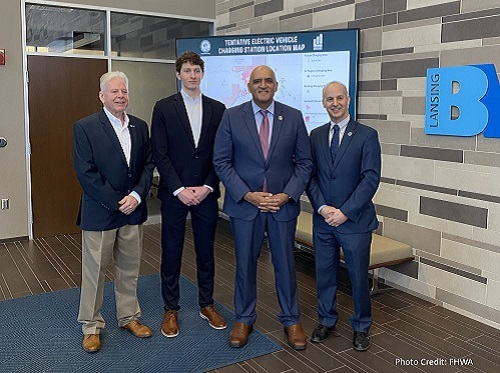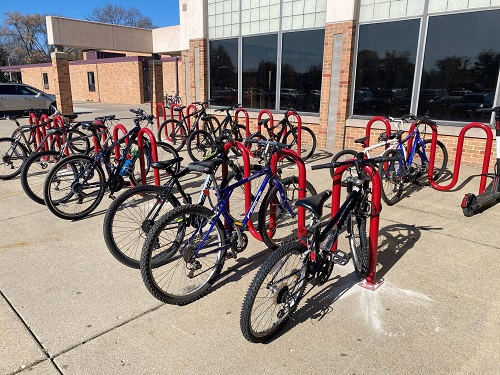The Federal Highway Administration recently awarded nearly $150 million to 24 grant recipients in 20 states to make existing electric vehicle or EV charging infrastructure more reliable.
[Above photo by the FHWA]
The agency said that grant funding will go towards repairing or replacing nearly 4,500 existing EV charging ports nationwide and, in some cases, bringing them up to code. The FHWA said those targeted investments complement the billions in federal and private sector funding already issued to help reach President Biden’s ’s goal of bringing at least 500,000 public EV chargers online by the end of the decade.
The funding for this $150 million grant award comes from the new “EV Charger Reliability and Accessibility Accelerator” program within the $5 billion National Electric Vehicle Infrastructure or NEVI formula program created by the Infrastructure Investment and Jobs Act.
The FHWA initially made $100 million available via a notice of funding opportunity or NOFO in September 2023 to help states and localities repair and replace existing but non-operational EV charging systems.
That NOFO stipulated a 10 percent set-aside for states or localities that require additional assistance to strategically deploy EV charging infrastructure. As a result, the agency said this first round of EV charger repair/replacement funding focuses on improving the reliability and accessibility of the current EV charging network.
“Charging your electric vehicle should be as easy and convenient as filling up a gas tank – and these grants will help do that by making our EV charging network more reliable,” said FHWA Administrator Shailen Bhatt in a statement. “We’re building a bigger and better EV charging network to keep up with driver demand, and we’re also ensuring the existing network works when you need a charge.”
FHWA is coordinating with the Joint Office of Energy and Transportation or JOET – an office overseen by both the U.S. Department of Transportation and U.S. Department of Energy – as it supports the build-out of an EV recharging network across the United States.
“Making it easy for everyone to ride and drive electric means making sure that drivers can always count on EV charging stations to work when they’re needed,” added Gabe Klein, JOET executive director. “Repairing and replacing existing stations gives drivers the confidence they need to choose electric, complementing the buildout of much-needed, new infrastructure while creating good jobs across the country.”


